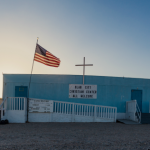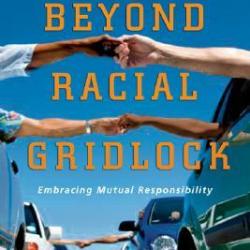Last year I wrote an assessment of DiAngelo’s White Fragility. Clearly, I was not very supportive of that work and I used my assessment to address some of the problems I see within antiracism. At the time it was not only the most popular antiracism book in the United States, it was topping the best seller chart for all books. The second most popular book was Kendi’s How to be an Antiracist. I decided to go after the most popular antiracism book, but I have come to believe that Kendi’s work is more problematic than DiAngelo’s. For that reason, I have decided to assess and critique his book How to be an Antiracist.
To be clear, I am open about my disdain for the approach of antiracism. While there are issues where I agree with antiracism, by and large this is a philosophy that will interfere with beneficial efforts to deal with our racial problems. I have openly advocated for collaborative conversations rather than a heavy-handed antiracism approach. Nevertheless, antiracism is not a monolithic approach. Some ideas in antiracism are worse, and more dangerous, than others. And while a lot of attention has deservedly gone to criticizing the DiAngelo’s ideas, I have concluded that the biggest threat to potential future racial peace is Kendi’s assertions about what we must do to become an antiracist society.
Why do I think that Kendi’s work is more dangerous than DiAngelo’s? Two reasons. First, Kendi is setting himself up to have more influence than DiAngelo. DiAngelo is making nice coin with her speaking engagements and is influential. But I have not seen her attempting to set up an organization to systematically push her ideas. So the extent of her influence is likely to be limited to those she convinces in her sessions and the people those individuals persuade that white fragility is an important problem to conquer. To be sure, she is influencing a lot of people and doing a lot of damage but without organization I see a limit to the damage she can do.
On the other hand, Kendi is not only speaking out on his basic ideas about antiracism but he is also institutionalizing those ideas through his Center for Antiracism Research at Boston University. Simply having a center may not mean very much; however, this will be a well-funded enterprise, with the potential to gain a lot more funding and resources, and Kendi already has the popularity in the right social circles to leverage the influence of this center. Even if DiAngelo sells more books, Kendi is in an excellent position to have a more enduring impact on the social norms and values of our society. Given my mistrust of antiracism, that potential longevity is enough to make Kendi more problematic than DiAngelo.
Compounding the problem, Kendi has an intent that is much more ambitious than anything DiAngelo intends. While DiAngelo has seemed to focus on racking up nice speaker fees, Kendi has gone to the trouble of setting up a center to push his ideas. You can also see his intent to have a wide ranging influence by his writing of a children’s book on antiracism. Kendi aims to impact the next generation. While both will probably say they want to make a difference in the large society, only Kendi has made the type of real investments towards accomplishing such goals.
But second, and beyond the organization he is putting into place, I find his ideas more troublesome than DiAngelo’s. Kendi and DiAngelo share many common ideas together. They both center the experience of people of color over whites, take a proactive approach to dealing with racism, argue that intentions do not matter, only actions, and that America is basically a racist nation. Kendi shares some ideas with DiAngelo where I agree and ideas where I disagree. I covered a lot of those disagreements in my critique of White Fragility. Indeed, they also share devastating weaknesses in their work. For example, neither provide any empirical foundation that what they advocate can work. At best they offer anecdotal evidence for their assertions. Both imply that racism is the only real reason why individuals may oppose their work, which eliminates the possibility of external critique. Neither of them can be the basis of any real conversation between racial groups. Finally, both use derogatory terms for whites who are in disagreement. Those whites are either “fragile” or racist.
But despite their similarities, there are some critical differences that need our attention. One difference is that Kendi’s idea about antiracism is more expansive than DiAngelo’s. To be an antiracist in Kendi’s definition is not merely about having the right ideas about racial issues, but it is also having the right ideas about gender, sexuality, our economy, our space, among other areas of our lives. Since Kendi argues that any differences between racial groups are due to racism, then to have the wrong idea about, say capitalism, is to not fully follow the mandates of antiracism if capitalism can be shown to contribute to differences between racial groups.
I am told that DiAngelo is partial to Marxism but leaves it out of her talks so that she does not give her audience a reason to reject her ideas. Regardless of whether that is true or not, Kendi has no such fears. Kendi’s antiracism is an all-encompassing document about what we are to believe so that we can fight racism. We must not only deal with rules and institutions that are obviously connected to racism but even institutions that do not seem directly connected to racism, like our capitalist economy, must be altered in our fight against racism.
Furthermore, Kendi argues that one cannot be a nonracist. One is either a racist or an antiracist at any given point in time. So to disagree with his assessment in any of these areas is to contribute to racism and to make you a racist at that point in time. To use the example of capitalism again, one is not a nonracist if one supports capitalism. One is a racist. To be an antiracist is to oppose capitalism. This type of dichotomous approach coupled with the wide range of demands made by Kendi indicate just how overbearing his ideology can become.
How far will Kendi go in his fight against racism? Kendi openly states that racial discrimination based upon antiracism principles is acceptable to combat the racism he sees in society. In Kendi’s world it is not an acceptable counterargument to state that a particular policy will clearly work to the disadvantage of whites. Rather because of the historical and structural nature of racism, efforts to eliminate it can include such policies. I have not yet read where Kendi puts limits on antiwhite discrimination in his pursuit of an antiracist society and so I want to be careful about putting words into his mouth. But unless Kendi clearly articulates limits to antiracism discrimination, which he may have done in some of his other work, then whites can rightly fear if Kendi, or some of his disciples, gain real power.
And that leads to the worst of his ideas. Kendi speculates about the development of a department of antiracism within our federal government. It would have no political appointees (so the Republicans will not be able to moderate it) and have experts trained on racism. This department would have wide ranging powers to preclear any local, state or federal public policy. There would be tools to punish government officials who do not voluntarily change policies that are deemed to be racist. Furthermore, Kendi would want this department formed as part of a constitutional amendment that would prohibit racist ideas by public officials. Remember that Kendi has a wide-ranging list of social institutions that fall under his racism/antiracism division. It is reasonable to assert that Kendi’s department of antiracism would wield power over almost every area of our lives.
Holy dictatorship Batman!!! Kendi wishes for a government that enforces his particular ideas about how we are to live. It is fair to think of this as a Supreme Court, but instead of basing their decisions on what we can do on the Constitution, they base their decisions on the values espoused by Kendi. And this is all to be done under the rubric of defeating racism. Can we trust this department to be fair to everyone and only correct real racial disparities? I doubt it. The only person I trust with that sort of power is Jesus. If Kendi fails to articulate some limit to the type of antiracism discrimination that can be imposed on whites, then you theoretically have a powerful governmental agency that can do whatever it wants to significant segments of the population. They only have to justify it as part of the fight against racism. Kendi’s solution to racial oppression is to set up a government agency that has the potential for more racial oppression. Dissenters will undoubtedly face the wrath of this powerful agency.
DiAngelo, at her worst, is going to poison the relationships of whites to nonwhites with her attempt to neuter whites. Her teachings have not been shown to be effective to reduce racial tensions, and can possibly make race relations worse. The worst case scenario with her is that her teachings become so popular that we have a majority of individuals in our country demanding that whites adopt a stance of white fragility and that further inhibits real racial conversations. But she has not developed any institutional mechanisms by which she can have a big impact on our government. So, her teachings are awful. But they do not put the entire government under her control awful.
Now I can already hear people say that Kendi will never get what he wants. And they are highly likely to be right. I mean it takes a lot to amend the constitution and the type of amendment he is proposing is not likely to get passed in this polarized nation. His idea of a Department of Antiracism is a pipe dream. But he now has the resources and position to push this dream out to a lot of individuals. He also has a very popular book out there and is in a good position to attract a lot more supporters. And while his organization talks about doing research, I suspect that what I call research will not be conducted according to the scientific method. Much of this “research” is likely to be thinly veiled activism. His ideas of antiracism are likely to be with us long after DiAngelo has delivered her last speech on white fragility.
A lot of folks are going to get the idea that the way to save our country from racism is to promote these types of oppressive ideas. Even though he is likely to never get what he wants, Kendi can alter the nature of the racial conversation we have in our nation in a decidedly negative manner. When you have a significant number of people fighting for a government department with the power and motivation to implement the desires of Kendi, things will change, although not to the degree he wants to see them changed. But at the very least his efforts will further polarize our already heavily polarized political culture. At the worst it can lead to the implementation of law and rules, but not likely an entire all-powerful department, that enfranchises some of the worst of Kendi’s desires.
The harm Kendi can do with his toxic ideals and political organization is immensely more than the damage DiAngelo can do. But the institutional power Kendi is gaining as well as the toxicity of his ideas are going to make it harder for us to achieve any level of interracial unity in the United States. Furthermore, I can see little good coming out of producing more individuals who want to discriminate against other groups. His ideas are dangerous because his ultimate goals would set up a potentially oppressive society. But even beyond his goals, which thankfully are not like to be achieved, his work will continue to set up unrealistic expectations that frustrate activists and deepen the divide we will have to overcome.
Others have pointed out other problems with Kendi’s work such as his inaccuracy, unwillingness to entertain alternatives and the lack of grace in his work. These critiques are largely on the mark. But the elements of his ideas that produce this unyielding adherence to a program that forces others to adhere to his wishes is the element I find most dangerous. And that is the element I have chosen to focus upon. While others have talked about his ideas about a Department of Antiracism, I am surprised that more individuals have not discussed this problematic idea. Perhaps it is because many individuals recognize that it will be all but impossible to ever put such a department in our government. But that misses the point. The fact that someone with such resources can promote such a dangerous idea will have resounding effects upon useful efforts to confront our racial problems.










